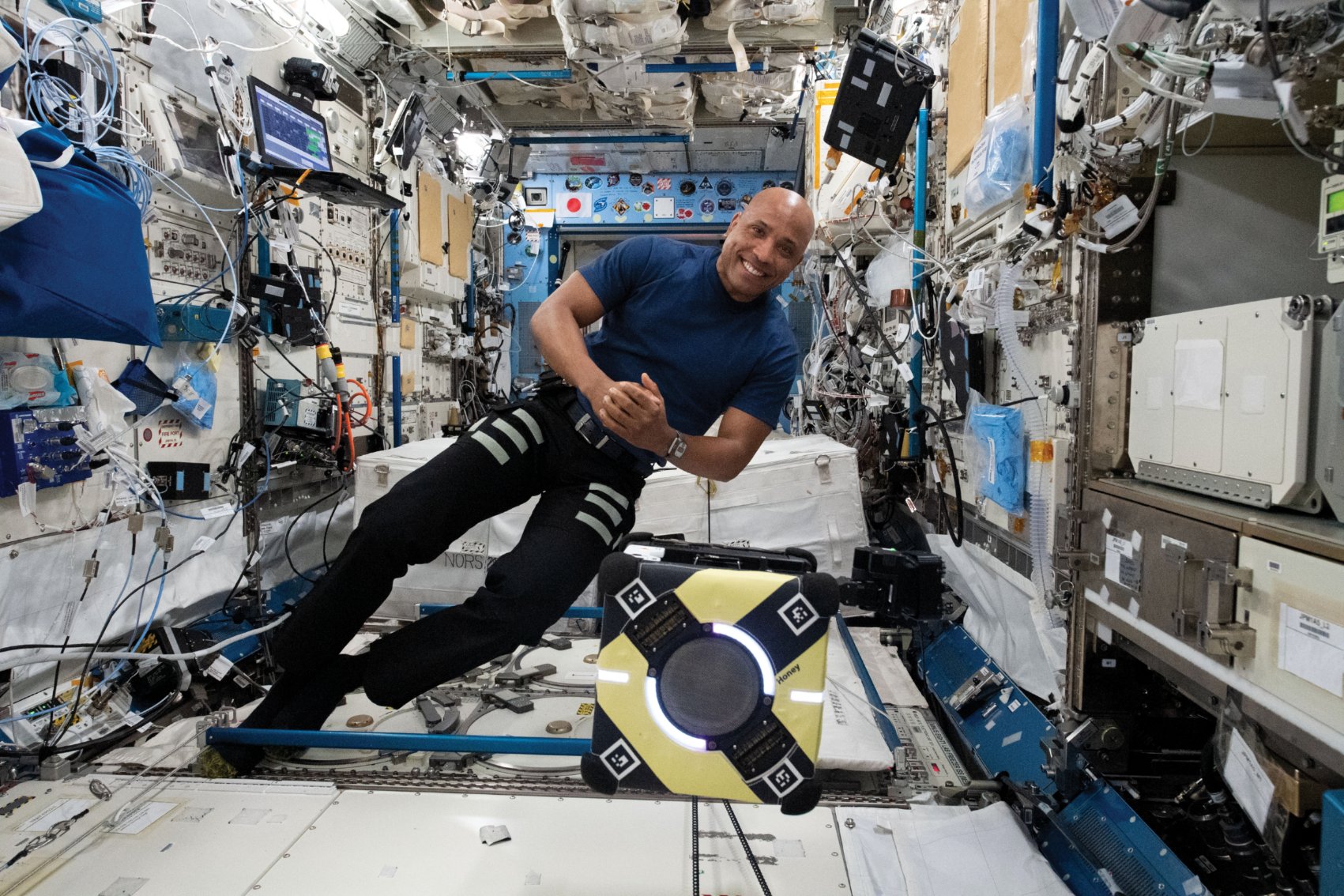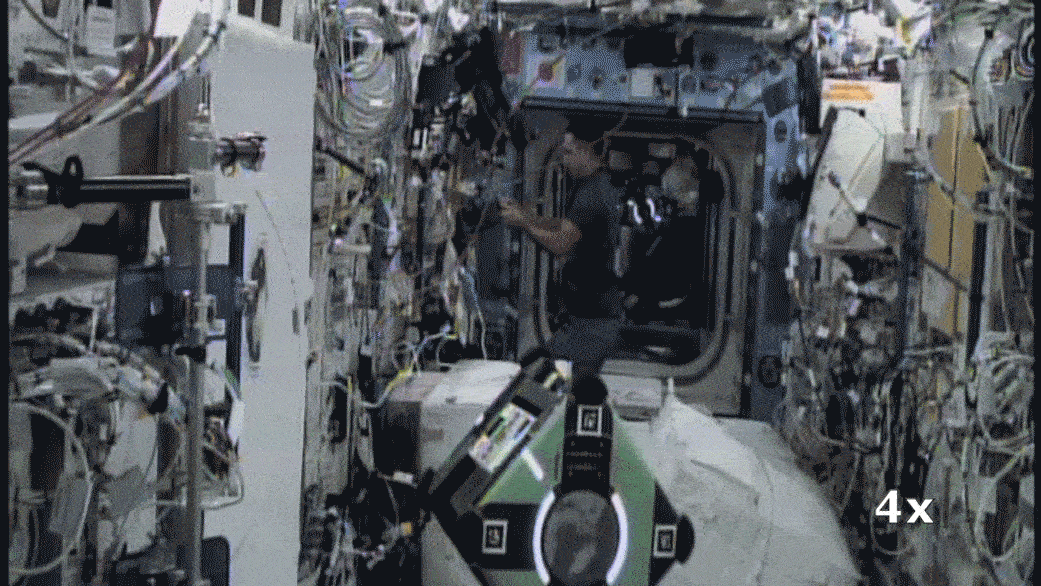Watch NASA's Astrobee space-bots working independently on space station for the first time

For the first time, NASA's new free-flying robots, Astrobees, are working independently, side by side with humans, in separate modules of the International Space Station (ISS). According to the agency, in past experiments, the space-bots have operated one at a time or have needed more hands-on support from their human colleagues.
In this video posted by NASA, two Astrobee free-flying robots – Queen in front and Bumble in the back – work alongside NASA astronaut Raja Chari (closest to camera) and ESA astronaut Matthias Maurer aboard the ISS.

Gif Credit: NASA
While Bumble tested its navigation ability in the Harmony module and gathered new station mapping data, Queen captured its first 360-degree panoramic image of the interior of the orbital laboratory.
The two robots were launched to the space station in 2019, aboard different commercial resupply services missions.
For the first time, the Astrobee robo-assistants aboard the @Space_station are working independently beside their human counterparts! The robots are an important component to @NASA’s mission, helping manage routine tasks and free up time for the crew. https://t.co/lQFce0QSH9 pic.twitter.com/POHFO4QXhK
— ISS Research (@ISS_Research) July 22, 2022
Robots like Astrobee will play a significant part in NASA's mission to return to the Moon as well as other deep space missions. Astrobees are designed to help astronauts reduce the time they spend on routine duties, leaving them to focus more on the things that only humans can do. They can operate fully autonomously or under remote control by astronauts or ground operators.
In addition to making spaceflight safer and more cost-effective, robotic assistants like the Astrobees could manage routine chores to free up humans for more complex work. Furthermore, future spacecraft like the Gateway space station won't be crewed year-round, and will need smart, self-run robots to keep an eye on things while humans are away, NASA said in a statement.










